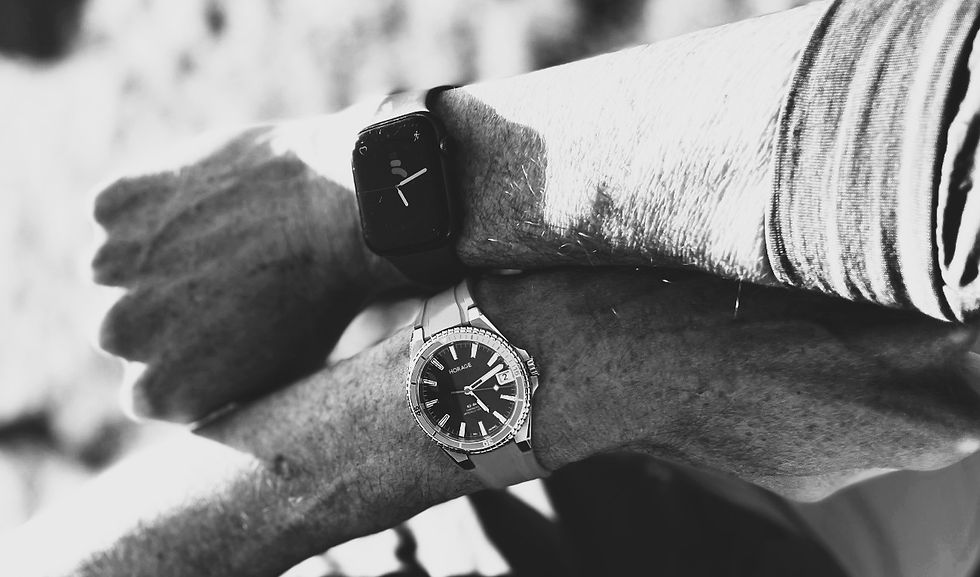Names are a very tricky thing to pin down and are surely one of the things in life which are most subjective. For a brand they are a critical component in building the foundations of successful enterprise. Giving a name is both a great honour and responsibility. Get it right and you’ll be flying, get it wrong and you’ll be ridiculed.

There is a strong cultural element to the process. Finding a name which works across borders and languages is a huge challenge, even in an era of English becoming the global lingua franca. No wonder many organisations choose the easy option giving us an endless stream of “Model GLC325CDi’s” ….......whatever that’s supposed to mean.

Sometimes one word is not quite enough. At HORAGE we’ve been developing the art of creating completely new compound nouns for quite some time. This has lots of advantages, but it can also be a bit of a minefield – tread carefully with those words!

Let’s start with a dissection: what are the key ingredients of DecaFlux?
“Deca” /ˈdɛkə: the word stem from the Greek “deka” meaning “ten” (in English most mathematical words originate in Greek or Latin). We use it mostly to form the noun: ‘decade’ – a period of ten years.
Humans have an innate need to order and define the passing of time – you probably wouldn’t be reading these words if time wasn’t a subject that interests you! A decade is simultaneously a short and a long chunk of hours, minutes and seconds. We process our lives in decades – childhood, teenage years, our 20’s, 30’s etc. Cultural phenomena, fashions, technologies, careers, relationships, history: the building blocks of our lives are defined in decades as we look back and forward in time. Anything shorter than a decade is too quick to do justice to the time, place and energy that becomes an era. Anything longer becomes unwieldy and dilutes meaning and definitions.
And what is life if not a never-ending series of changes: sometimes we welcome them, sometimes we strongly resist. A state of perpetual flux.
/flʌks/- noun – “a continuous succession of changes of condition”,
“…the flow rate of fluid, particles or energy”

In our micro world of mechanical timepieces change can come a little slower. Perhaps subconsciously we welcome this: it is part of the appeal. Horology is a cosy bubble of tradition. In a future-obsessed world driven by satellites, software and AI a miniature mechanical device driven by cogs and wire springs is a hopelessly anachronistic blast of nostalgia.
Yet part of our daily joy is to be found in embracing contradiction: a love of watches can include Seamasters and Suunto, Garmin and Genta.

This brings us back to our flux conundrum (not to be confused with the flux capacitor of course). Our beloved modern gadgets create a real-life flux, which is not conducive to a happy mechanical timepiece. The magnetic field created by the army of electrically powered devices in our lives cannot be simply wished away. In fact, in the previous eight decades such products have exponentially multiplied in every corner of human endeavour. Heavy rock may have gone slightly out of fashion, but ACDC motors are everywhere and with carbon-based fuels scheduled for the history bin, electrically motors will become more and more ubiquitous. Another solution is required if mechanical timekeeping is to continue.

Our new DecaFlux, powered by the K3 calibre has a silicon solution. We’re super happy about the overwhelming positive energy that has come our way since we announced it on 20th March. We’re also super happy that with a price point well below CHF 3000 a whole new audience can discover HORAGE and start their new lifelong relationship with time.
No more hectic scrabbling in your jeans or backpack for the pesky phone which you always but never keep in the same place. A simple flick of the wrist and you can continue on your day with a smile on your face. When did you first get the watch bug? Tell us your story in the comments!
Wait - what's wrong with the word 'mist'?
Naming our daughter we got hung up on various proposed names that worked in one culture but not the other (Japan and Canada). Example: I liked 'Neve', but it sounded to much like 'nabe', or 'soup' in Japanese. Other names I liked but were unpronounceable to her Japanese relatives, owing the English sounds (th, r, l, v...) that are missing from that language. Picking a name that's good worldwide must be a pain in the butt!
Loved watches since early 70s, when as a kid, I was became fascinated by dad's 1016 Rolex that magically got power from his wrist motion. My 7yo mind was blown! Watches were awesome from then onward.
Incredibly well written text about our name choice 🙏🙏🙏